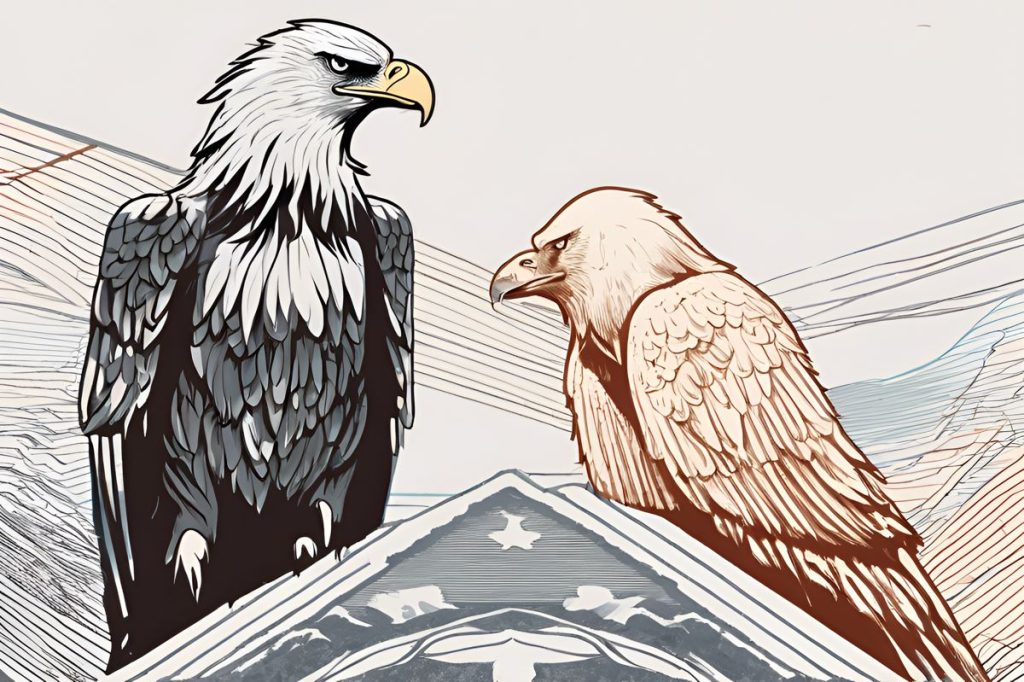In the evolving landscape of global defense alliances, President Trump’s isolationist stance towards NATO members who fail to meet spending obligations threatens the principle of collective defense. This uncertainty surrounding U.S. commitment could shift the dynamics of transatlantic security, challenging the longstanding alliance’s response to evolving threats and geopolitical shifts.
How has U.S. leadership affected NATO’s stance towards collective defense?
Under President Trump, U.S. commitment to NATO was questioned, suggesting a conditional defense for members not meeting spending obligations. This hinted at a return to isolationism and could shift the dynamics of transatlantic security, challenging NATO’s principle of collective defense in the face of evolving threats.
Trump’s Isolationism and Nato’s Uncertain Future
The political landscape of global defense alliances often shifts with the leadership at the helm of major powers. A significant example of this came to light when Donald Trump, during his presidency, expressed unsettling views on the United States’ commitment to Nato. At a rally in South Carolina, he made a controversial statement suggesting that he might not defend Nato members who failed to meet their defense spending obligations. This hyperbolic stance, veiled as a jest yet hinting at a deeper isolationist sentiment, resonated with a part of the American ethos that dates back to the Monroe Doctrine. The doctrine encapsulated a long-standing desire to avoid entanglement in European affairs while keeping external powers away from the Western Hemisphere.
This isolationism was tested and bent during the two World Wars, where the U.S. entered reluctantly but ultimately played pivotal roles. The attack on Pearl Harbor in 1941 and Germany’s subsequent declaration of war on the U.S. forced America’s hand, leading to an alliance with the Soviet Union. This partnership was crucial in defeating Nazi Germany but laid the groundwork for the Cold War as ideological differences surfaced post-war.
The Origins and Evolution of Nato
The North Atlantic Treaty Organization (Nato) itself was a response to the complex post-World War II milieu. Nato’s initial purpose, as outlined by its first secretary-general, was “to keep the Russians out, the Americans in, and the Germans down.” The British, in particular, saw Nato as a means to ensure American involvement in European security, which was then under the shadow of Soviet expansionism. Decades of committed American military presence in Europe followed, symbolized by President John F. Kennedy’s “Ich bin ein Berliner” speech in 1963.
However, the collapse of the Soviet Union in 1991 sparked an identity crisis within Nato, as it seemingly lost its principal adversary. Russia, the Soviet Union’s successor, did not initially pose the same threat. Even the idea of Russia joining Nato was floated by President Vladimir Putin in 2000. The U.S. response, influenced by internal counsel, left the proposition unexplored, and the alliance continued to expand eastwards, incorporating states with historical grievances against Russia.
Nato’s Rekindled Adversary
The re-emergence of Russia as a perceived threat has reinvigorated Nato’s raison d’être. The alliance’s eastward expansion, which may have been seen as strategic positioning, ensured its relevance and continued American engagement. Yet, with changing political tides in the U.S. and the rise of figures like Donald Trump, the steadfastness of America’s commitment to Nato allies has been called into question. The notion that an attack on one is an attack on all may no longer be an unconditional guarantee, particularly in a non-nuclear scenario.
Current sentiments in America indicate a shift towards a more conditional approach to collective defense, potentially altering the dynamics of transatlantic security. The challenge now lies in adapting to these changes while navigating the evolving threats that face member nations.
The Shadow of Navalny’s Death
The context of Nato-Russia relations is further complicated by events within Russia itself. The reported death of Alexei Navalny, a prominent opposition figure, while incarcerated in a Russian prison, raises concerns about the state’s treatment of political dissidents. The circumstances surrounding his death are suspicious, especially considering his near-fatal poisoning in 2020. While it is premature to draw conclusions, such incidents cast a shadow over Russia’s internal politics and its external relations, including its tumultuous history with Nato.
In sum, the future of Nato and its engagement with Russia is intertwined with the internal politics of member nations and the geopolitical strategies that emerge as leaders, and their ideologies, evolve. The alliance must continue to adapt to these changes, maintaining vigilance and unity in the face of both old and new challenges.
How has U.S. leadership affected NATO’s stance towards collective defense?
Under President Trump, U.S. commitment to NATO was questioned, suggesting a conditional defense for members not meeting spending obligations. This hinted at a return to isolationism and could shift the dynamics of transatlantic security, challenging NATO’s principle of collective defense in the face of evolving threats.
What was the original purpose of NATO and how has it evolved over time?
NATO was initially formed to keep the Russians out, the Americans in, and the Germans down after World War II. Over time, the collapse of the Soviet Union led to an identity crisis within NATO, but the re-emergence of Russia as a perceived threat has reinvigorated the alliance’s purpose.
How has the eastward expansion of NATO impacted its relationship with Russia?
NATO’s eastward expansion, while initially seen as strategic positioning, has sparked tensions with Russia, especially as the alliance continued to incorporate states with historical grievances against Russia. This expansion has rekindled adversarial dynamics between NATO and Russia.
How do recent events in Russia, such as the reported death of Alexei Navalny, impact NATO-Russia relations?
Recent events in Russia, such as the reported death of Alexei Navalny, a prominent opposition figure, raise concerns about the state’s treatment of political dissidents. These events further complicate NATO-Russia relations, casting a shadow over Russia’s internal politics and its external relations with NATO.

